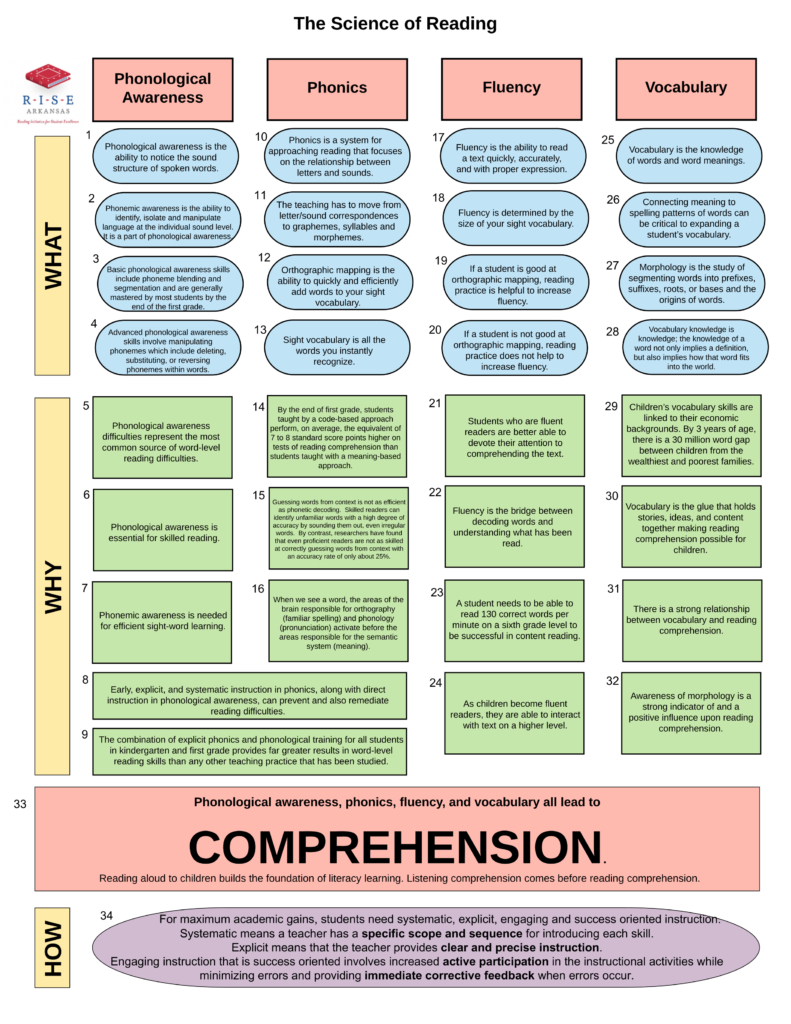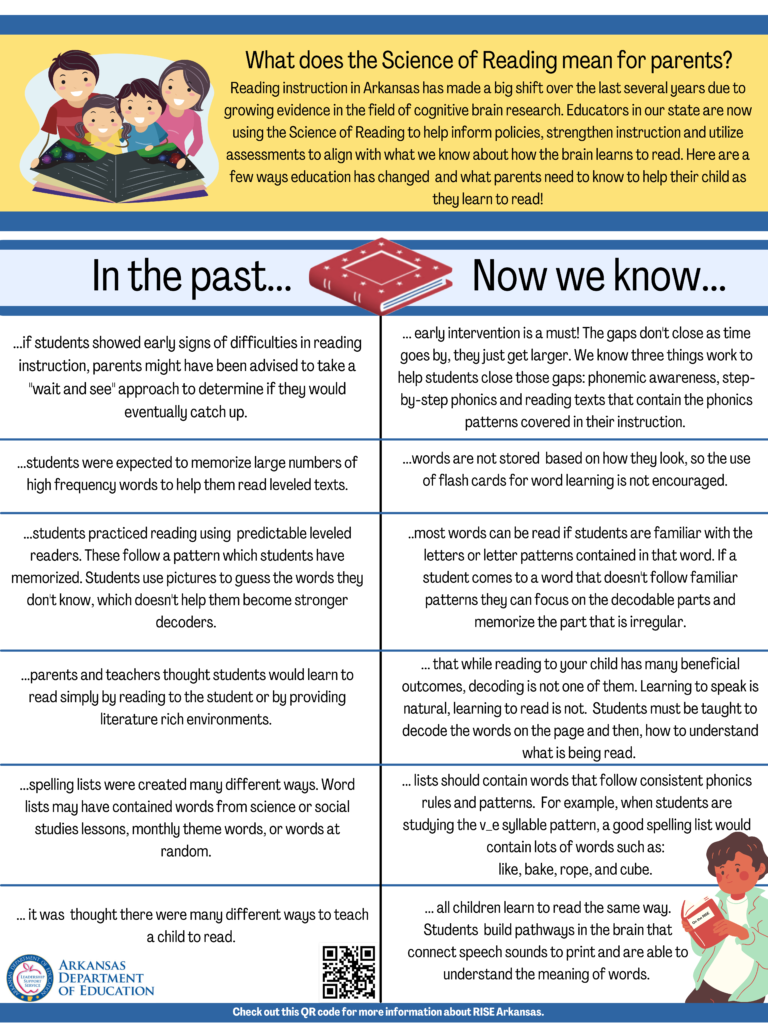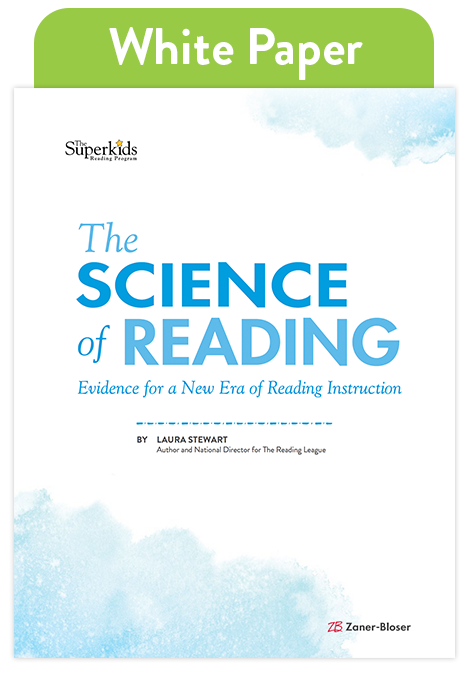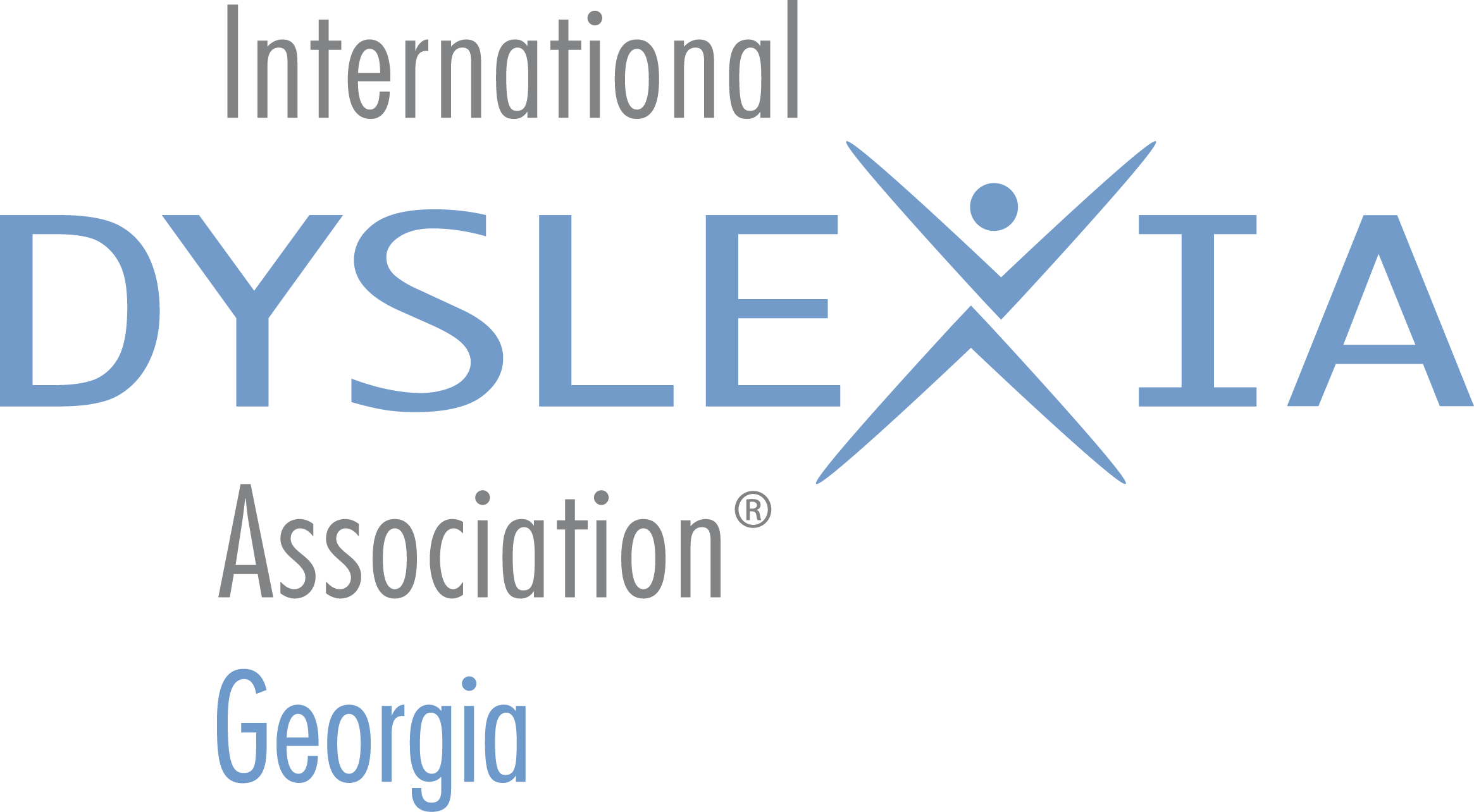What is the Science of Reading?
“The science of reading has culminated in a preponderance of evidence to inform how proficient reading and writing develop; why some have difficulty; and how we can most effectively assess and teach and, therefore, improve student outcomes through prevention of and intervention for reading difficulties. The science of reading is derived from researchers from multiple fields…”
Request your free eBook The Science of Reading: A Defining Guide (2022) here.
The Science of Reading: Defining Guide provides a firm definition of what the science of reading is, what it is not, and how all stakeholders can understand its potential to transform reading instruction.
Watch the January 2022 book launch event here.
Dr. Stephanie Stoller discusses the guide in this January 25, 2022 webinar, “Unpacking The Science of Reading: A Defining Guide“
“Understanding the Science of Reading and Structured Literacy Webinar and Panel Discussion” with Dr. Susan L. Hall, Retired Co-Founder, 95 Percent Group, and a panel of IL educators. (Jan. 2022)
ALSO watch Tuesday, January 25 Literacy and Justice for All LIVE! From Knowledge to Action: One School’s SoR Journey. Join the leadership team of West Side Elementary (the creators of the PA Buffet) as they have a candid conversation about their successes and challenges during year one of SoR implementation. Discussion will be focused on school-wide professional development, systems and structures, and innovative solutions. Participants will receive a link with resources to help them create their own PA Buffet (Phonemic Awareness Buffet)! RECORDING AVAILABLE SOON.
“At this younger age, our students are soaking up everything. If we can start now, it will set a solid foundation for reading and writing skills,” explains Jill Gatlin, a first-grade teacher at West Side. She and many Marietta City Schools (MCS) teachers are teaching students through the Science of Reading, which follows the way each child’s brain interprets and understands sound and connects that sound to written letters, leading to increased literacy in reading and writing. This work is part of the Literacy and Justice for All project, in partnership with the Cox Campus, MCS and United Way of Greater Atlanta! (IDA-GA added this on 1/22/2022)
What is the Science of Reading? Continued
Watch Dr. Holly Lane from the University of Florida Literacy Institute (UFLI) explain in less than 7 minutes “What is the Science of Reading?” Research studies from the fields of education, developmental psychology, cognitive science, neuroscience, and linguistics are informing our reading instruction. The vast body of research is informing what we teach, when we should teach it, and how it should be taught.
In this July 2019 webinar (approx. 45 min.), Dr. Jan Hasbrouck provides an overview of what is meant by the Science of Reading.
What is Structured Literacy and how does it relate to the science of reading?
Read an article by The Big Dippers, https://www.thebigdippers.org/general/science-of-reading-and-structured-literacy/
“Structured Literacy is a way of teaching reading and writing that uses explicit, systematic, sequential, cumulative, diagnostic instruction that is delivered to mastery. It is not a curriculum or a program, but a systematic approach that is based on years of research. Structured Literacy is clear, intentional, and engaging reading instruction that directly and explicitly teaches students how to work with written language. The term was first introduced in 2016 by the International Dyslexia Association as an umbrella term to describe scientifically-based, highly effective instructional practices to support students with reading challenges. However, research has demonstrated that Structured Literacy can benefit all students because it recognizes and supports the multiple brain processes involved in reading. Structured Literacy is supported by science and equips teachers to meet the needs of all students.”
Read the Educator Training Initiatives Brief, Structured Literacy: An Introductory Guide (March 2019).
Read the IDA Fact Sheet entitled Structured Literacy: Effective Reading Instruction for Students with Dyslexia and Related Reading Difficulties
Read Here’s Why Schools Should Use Structured Literacy, an article by L. Spear-Swerling, Ph.D. (June 2019).
What has research shown us are the important components to address in reading instruction?
This infographic from R.I.S.E. Arkansas illustrates at a glance the What, the Why, and the How.

Click here to view the PDF version of this R.I.S.E. Arkansas infographic. The PDF version includes a 2nd page with references, each with numbers corresponding to the numbers on the infographic.
The Deal Center For Early Language and Literacy at Georgia College
In 2020 the Deal Center began offering a virtual professional learning series to help educators (and parents) learn more about the components within the science of reading from experts in the field. You can access the recordings HERE.
What does the Science of Reading mean for parents?
This infographic from R.I.S.E. Arkansas helps parents understand how educators may have approached reading instruction in the past and what we now know based on the growing body of evidence from the science of reading.

For more information, visit https://sites.google.com/dawsonesc.com/risearkansas/the-science-of-reading

Click here to view this White Paper by Laura Stewart, National Director of The Reading League. (

